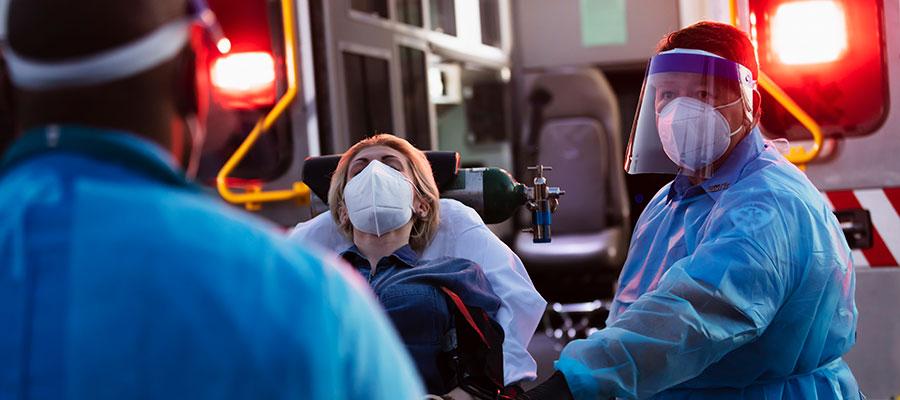A Rural Hospital Uses Simulation Training to Learn and Practice Emergency Preparedness Skills

The increasing number of public health emergencies in the U.S., including mass violence incidents and natural disasters, highlight the need for enhanced medical surge management and emergency preparedness programs at hospitals and health systems.
Simulation training stands out as a proactive approach to strengthening emergency preparedness, offering critical support for health care professionals to manage high-stress scenarios effectively.
Helen Newberry Joy Hospital, in Michigan’s Eastern Upper Peninsula, partnered with the Center for Advanced Medical Learning and Simulation (CAMLS) at USF Health in Tampa to strengthen the hospital’s trauma unit surge capabilities. The hospital’s remote geographic location, limited resources and increased probability for severe weather pose challenges if a medical surge incident occurs. CAMLS trains health care professionals through realistic simulation experience. Individuals and teams learn and practice the necessary skills to respond efficiently to medical surge scenarios.
Leaders at HNJH say the simulation-based training improved teams’ abilities to manage an influx of trauma patients, particularly in high-stress, low-resource situations common in a rural setting. The realistic scenario-based exercises allowed clinicians to practice and refine their response techniques, while interprofessional team training enhanced collaboration and communication.
In addition, CAMLS training emphasizes the importance of continuous improvement through debriefing sessions, which has helped the hospital identify areas for improvement and integrate lessons learned into future practices.
Haru Okuda, M.D., CEO and executive director of USF Health’s CAMLS, and Steven A. Vix, M.D., medical director of the trauma program at HNJH, discussed the simulation training experience during a session at the 2024 AHA Rural Health Care Leadership conference.
For more information and resources on how hospitals and health systems can better prepare for, respond to and recover from public health emergencies, visit the Convening Leaders for Emergency and Response (CLEAR) hub.
Chandler Carter is a program manager at the American Hospital Association.
Presented as part of Cooperative Agreement 5 HITEP210047-03-00, funded by the Department of Health and Human Services’ Administration for Strategic Preparedness and Response (ASPR). The Health Research & Educational Trust, an American Hospital Association 501(c)(3) nonprofit subsidiary, is a proud partner of this Cooperative Agreement. The contents of this publication are solely the responsibility of the Health Research & Educational Trust and its partners and do not necessarily represent the official policies or views of the Department of Health and Human Services or of the Administration for Strategic Preparedness and Response. Further, any mention of trade names, commercial practices, or organizations does not imply endorsement by the U.S. Government.

